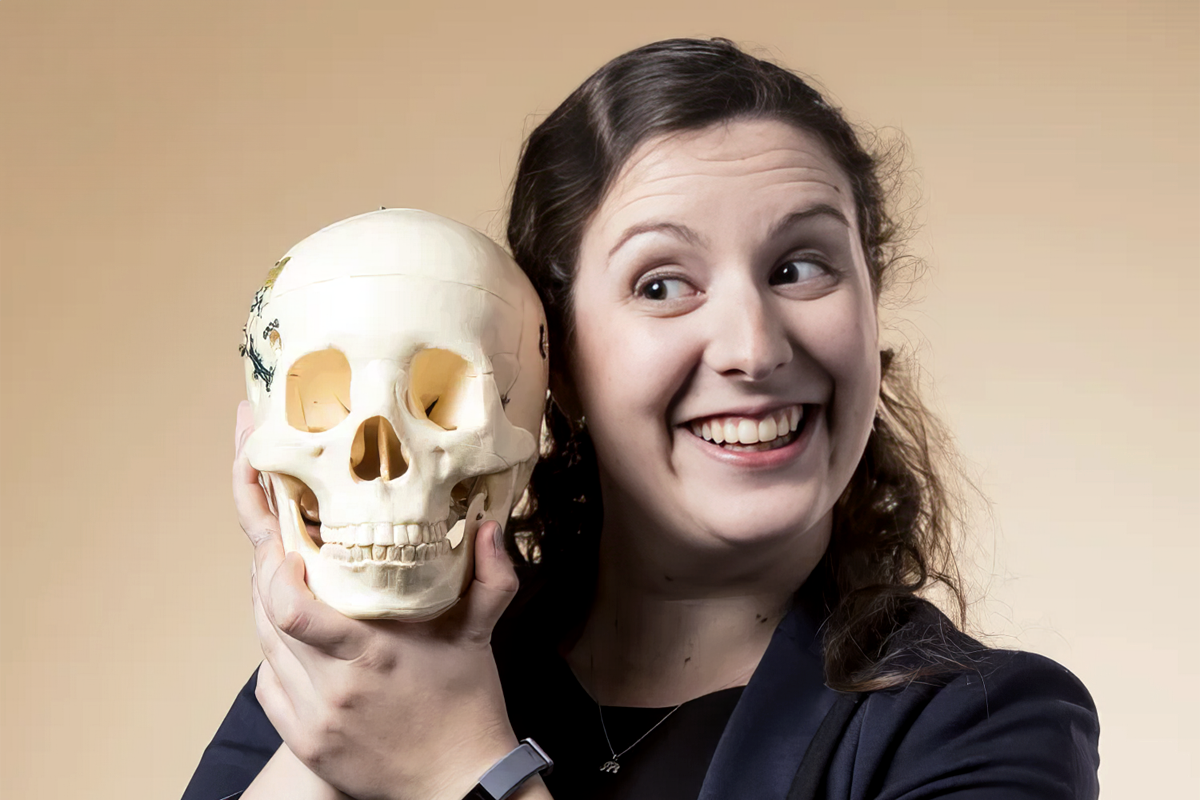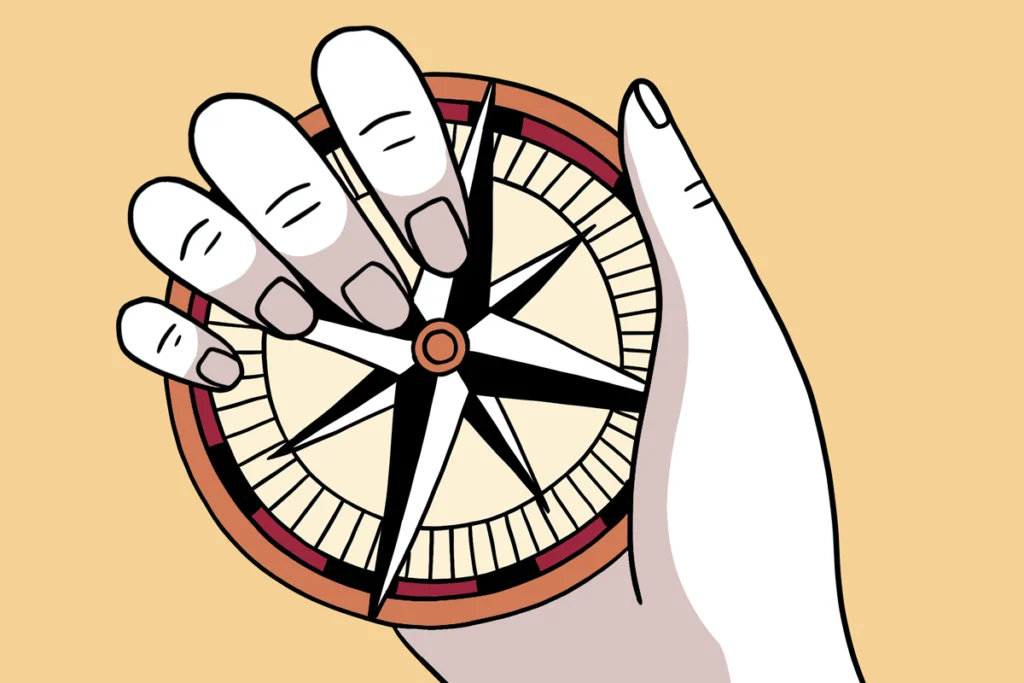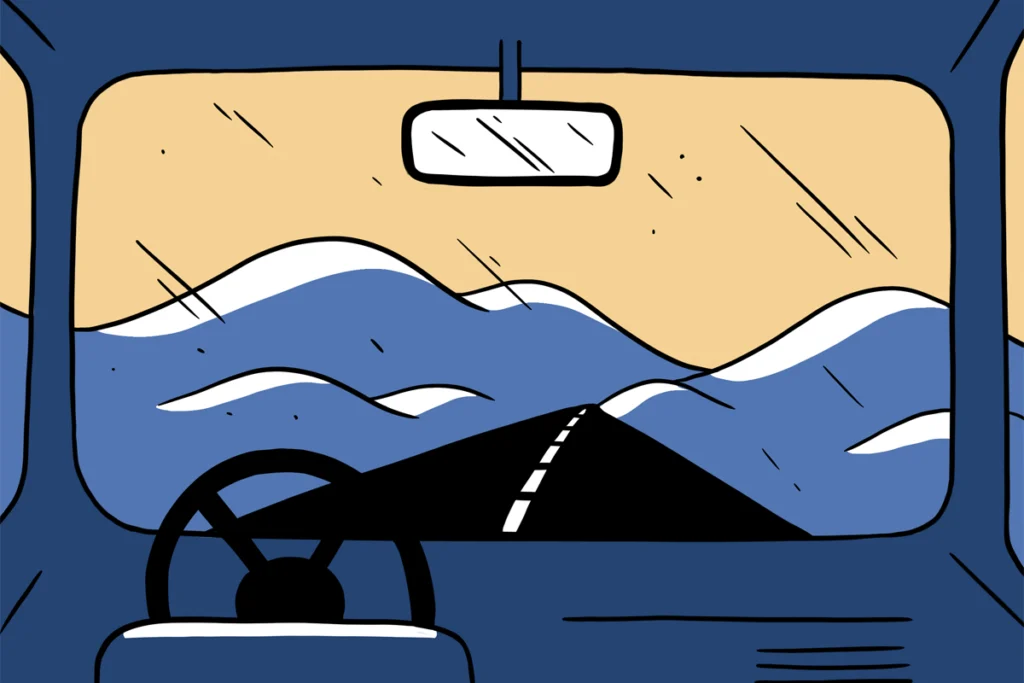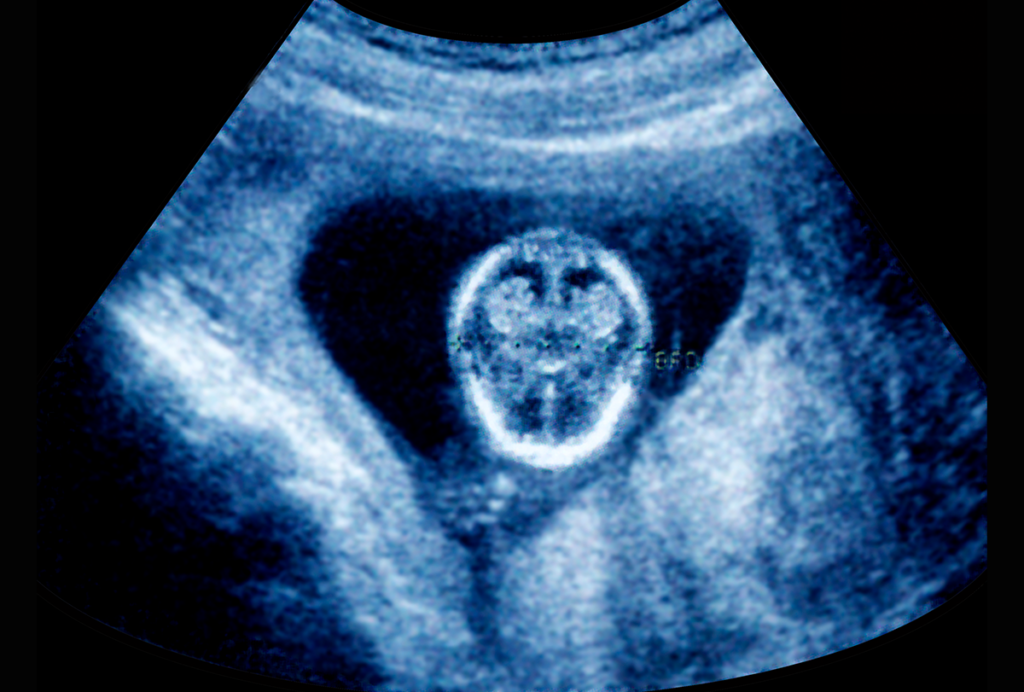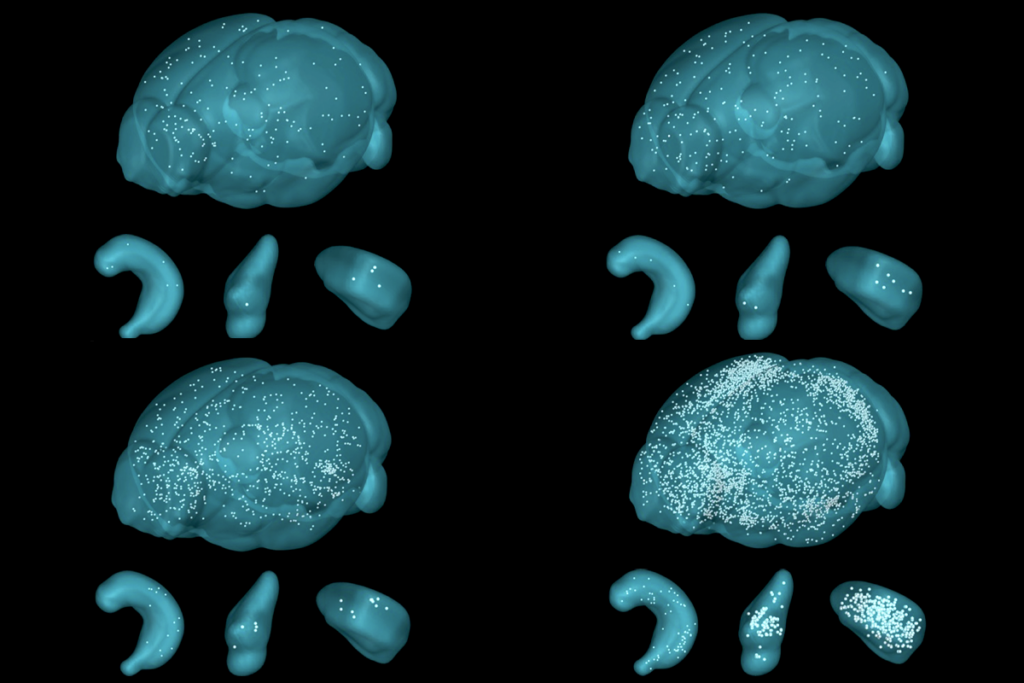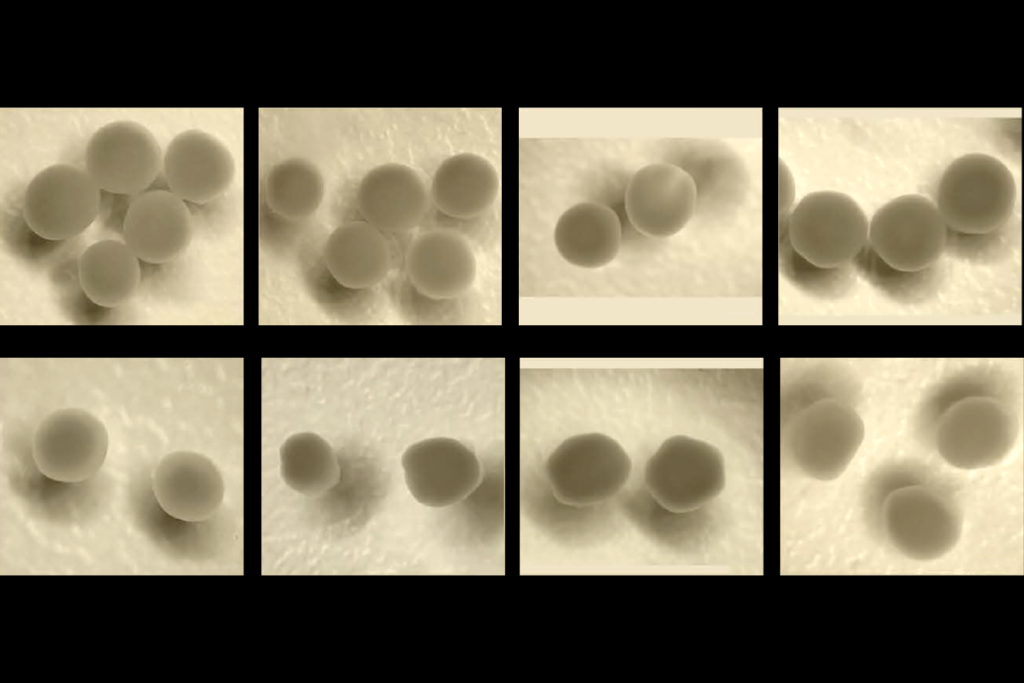Kaitlyn Casimo loves her job. Every day is different, she says, and she draws on her varied background to tackle her work as education and engagement manager at the Allen Institute. Armed with a Ph.D. in neuroscience, certificates in computational neuroscience and neural engineering, an M.Ed. in instructional design and experience directing plays, Casimo oversees a team of six people to organize dozens of outreach events and activities at the institute each year. She talked to The Transmitter about how she leverages her performing arts passion to engage the public, and to deliver workshops about elevator pitches and teach theater skills to scientists.
This interview has been lightly edited for length and clarity.
The Transmitter: What are some of your favorite outreach projects at the Allen Institute?
Kaitlyn Casimo: We have an ongoing program called the Teacher Academy. For one of these, we did an introduction to foundational principles of neuroscience that teachers need in order to understand some of the cutting-edge research that we’re doing here at the Allen Institute. In another project, we set up a partnership to put on a science day at the Pacific Science Center, our local science museum, that was all neuroscience themed. We also have workshops, where we bring in graduate students, postdocs, faculty members and other working scientists and teach them about current research that’s happening here.
TT: How do you adapt your theater experience to enrich your education and engagement efforts?
KC: The goal of theater as an art form is to present a compelling narrative story through performance that engages an audience and makes them think and have a good time. And that is essentially my goal as a science communicator and educator. My theater training comes in from the obvious onstage application of when you are teaching a group of people, you are giving a performance. But it’s also how do you develop a script—an outline of your material that hits those points that makes people understand what you want them to understand that is compelling and interesting? It is developing a production concept of what the format is going to be and how is it packaged in a way that people will interact with it.
TT: What should early-career scientists interested in roles like yours think about?
KC: Over the course of my neuroscience education, I really put a priority on breadth. I can pick up new scientific knowledge quickly. The thing that early-career scientists should know is that the most important thing is not necessarily how much science you know. It’s how quickly can you learn new science and how do you know how to ask the right learning question. It’s not necessarily “have I done this technique in the lab myself?” It’s “do I understand what this technique is getting at? Do I understand how this data is interpreted and applied?” That is what is crucial to being able to do my job.
TT: Do you have any other advice for early-career researchers?
KC: Everyone who has a Ph.D. in neuroscience, by definition, has done research in neuroscience. It’s the things that you do above and beyond the research that make you unique, as well as open opportunities to careers that are not research. Even if you want that research career, it is important to get experience in doing things other than research, because that is not going to be the only thing that you do. You’re going to teach, give presentations and talk to funders, media, policymakers and businesspeople. It is valuable to have those skills in a research career. And these skills can open doors to those other careers. There are so many ways to have a valuable, impactful, fulfilling science career that aren’t research. We need to stop treating research like the only successful career outcome.
Jobs, trainings and funds (Compiled by Angie Voyles Askham):
- André Fenton, professor of neural science, and Stefano Martiniani, assistant professor of physics, chemistry and mathematics, seek to jointly hire a postdoctoral associate in artificial intelligence for bioinformatics to work in their labs at New York University.
- Armin Raznahan, section chief in developmental neurogenomics at the National Institute of Mental Health, is looking to fill a staff position in his group. The hybrid role involves both clinical work—including overseeing and administering cognitive tests—and data analysis.
- The McGill University Department of Neurology and Neurosurgery is hiring an assistant or associate professor to join the Neuro’s Epilepsy Group.
Recommended resources:
- The U.S. National Science Foundation plans to begin collecting information on recent Ph.D. graduates’ sexual orientation and gender identity as part of its annual Survey of Earned Doctorates, according to an article in Science. “Many are hopeful that, if approved, the new data collection effort will provide a window into LGBTQ representation in the academic research industry,” the author writes.
- Attending scientific conferences is an important component of a research career, but for caregivers, managing the necessary travel is not easy. “Current frameworks are not flexible or equitable enough, and are ultimately failing those who are trying to maintain a sense of balance between caring and their careers,” write the authors of an article published last month in Nature. They outline four ways that funders can help support caregivers’ conference travel, including the ability to adapt childcare funds for the number of dependents that a grantee has at the time of a conference, rather than at the time of grant submission.
